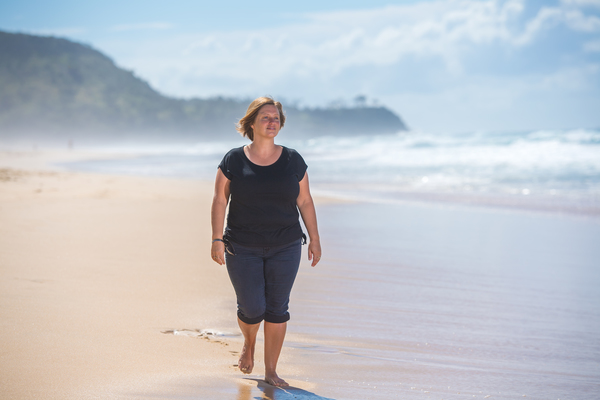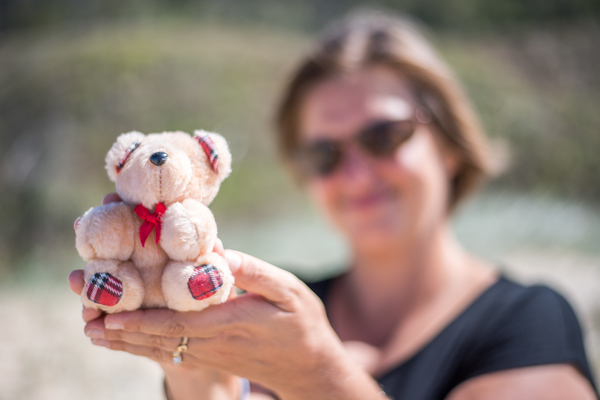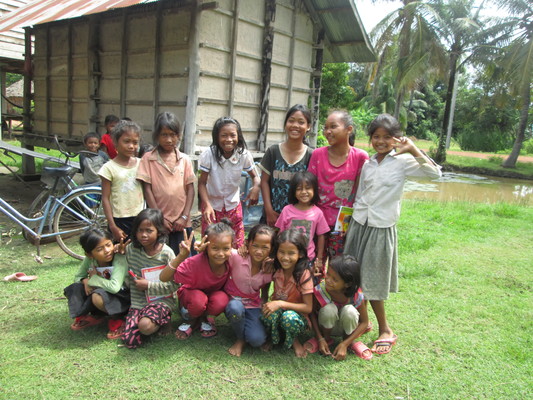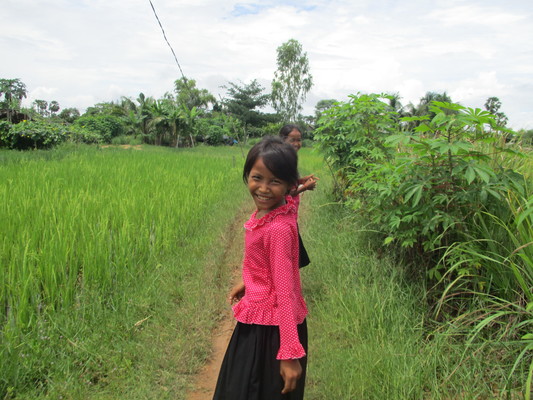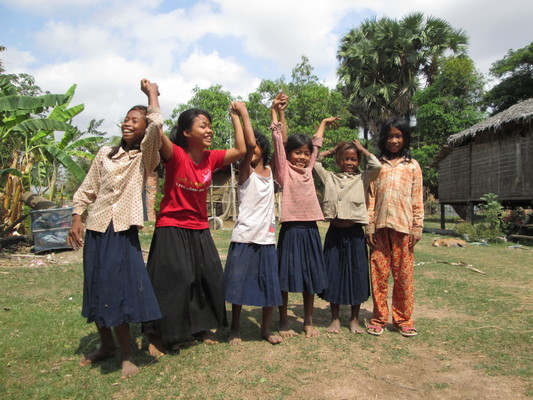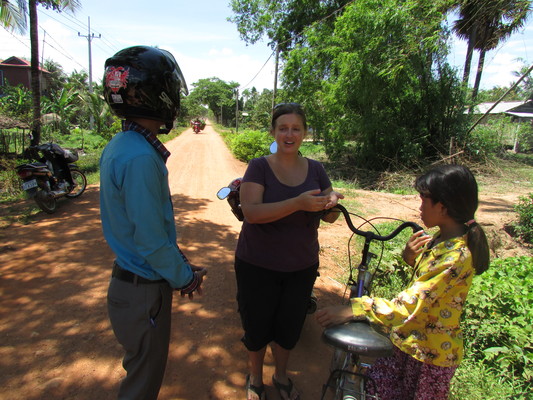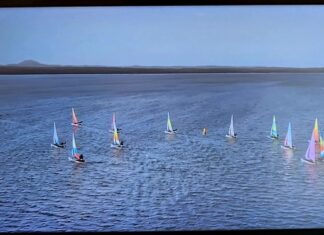By Margaret Maccoll
In the tourist town of Siem Reap, the gateway to the ruins of Angkor Watt temple in Cambodia, young girls as young as six or seven are being trafficked for sex.
A holiday spent volunteering in Cambodia in 2009 at an aftercare centre where girls rescued from sex trafficking go to heal has forever changed the life of Sunrise Beach primary school teacher Nicky Mih. The experience led Nicky to set up Free to Shine and as director she spends her time between Cambodia helping to prevent girls becoming sex slaves and raising funds for the project in Australia. Free to Shine works to prevent girls falling victim to trafficking by keeping them in school.
It’s hard to believe a family will sell their daughter into sex slavery. Nicky said sometimes desperate families do but often they are tricked into it. A lack of education and skills leads to unemployment and poverty. In Cambodia, the high rate of unemployment, lack of access to medical facilities and basic care and housing, combined with high levels of poverty and uneducated workers, are contributing factors to trafficking. Traffickers prey on vulnerable individuals and on their desperation for a better life.
“Some people have inadequate shelter, food and water. A child will drop out of school to help out. Traffickers target them with a fake job offer,” Nicky said.
“They’ll say a nice family in the city needs someone who can cook, clean and look after children. It’s not so far removed from ordinary life and seems like a solution. They tell the mother she’ll earn so much a month. The family will even send her to school. They’ll send a female trafficker as they’re more likely to trust a woman than a man.”
When girls are rescued the traffickers don’t go without, they just go out to a rural village and get another girl. Sex slavery and family violence are taboo subjects. Nicky said there was a high rate of family violence in communities despite them living in cramped and open conditions where little is unseen.
“People have learnt not to intervene. They learnt that through the Khmer Rouge. They learnt not to speak about these things,” she said.
Nicky said girls who have been sex slaves are considered “a bad and dirty girl.”
Men are not seen in the same way. Men are like gold, even if dropped in the dirt they don’t stain, she said. Asian men are the primary clients of sex slaves and international sex tourists are also clients.
The rescued women struggle to resume a normal life. Some trafficked girls go home and pretend they were working in a different province with an aunt. No one talks about it. “How well they reintegrate back into the community depends on them learning a skill to earn a living,” Nicky said.
During her time as a volunteer Nicky asked sex slave survivors how she could help them. “They said we’re OK, we’ve been rescued,” she said. “They wanted no other girl to go through the horrors they’d been through. They asked me to go out into the rural villages, find the girls who weren’t in school, and protect them. They told me that if these young girls were in school they would not be trafficked.”
The International Labour Organisation says that “getting girls into schools and keeping them there is vital to reducing their vulnerability to trafficking.” UNESCO reports that there are 34,780 female children and 64,431 adolescent girls in Cambodia who should be in school but are not.
Nicky said girls in school are physically protected by sitting in the classroom and mentally by becoming more self-assured and empowered through their academic achievements. Evidence suggests that even keeping children in school until age 16 dramatically reduces their likelihood of being trafficked, and will significantly improve their standard of living, she said.
Nicky said the Cambodian government was taking action to reduce sex slavery.
Cambodia is ranked on the Tier 2 Watch List on the international Trafficking in Persons (TIP) report created by the United States. The rank indicates the number of victims of severe trafficking is significant and has committed to making significant efforts to bring themselves into compliance.
Over the past decade the Cambodian government has set up a number of taskforces to combat human trafficking and brought into force a new law on the “Suppression of Human Trafficking and Sexual Exploitation” which criminalized all forms of trafficking. In 2016 Cambodia ratified the ASEAN Convention Against Trafficking in Persons Especially Women and Children. And the Commune Council for Women and Children has assigned a woman in every village whose job it is to look out for women and children. Nicky said when she first visited Siem Reap brothels were obvious but the police clamp down has sent the industry and sex slavery underground, now working through cafes, hotels and massage parlours.
A number of non-government organisations, (NGOs) including the United Nation’s UNICEP and UN Women, some in partnership with the police force, are working in Cambodia to help rescue sex slaves and assist their recovery and reintegration as well as in the areas of law enforcement, justice and child affairs. Nicky said keeping girls in school was a gap in the system Free to Shine is helping to fill.
The Free to Shine team works with local authorities and communities to reach the most at-risk rural girls, reducing their vulnerability to trafficking by improving their access to education and providing them with social work support. Thanks to a donation from Gold Coast company Synergy Fitness Nicky is able to work full time for Free to Shine. While she is back on the Sunshine Coast she aims to enlist the support of the community. She hopes people might support the project to keep girls in school and it doesn’t have to be a large amount. Just $1.50 will keep a girl safe in school for a day, she said. Last year Free to Shine established a Shine and Dine event to raise awareness through participating cafes and restaurants across Melbourne and funds from donations. The event will be held in Noosa for the first time this year in July. To be involved visit www.freetoshine.org/shineanddine2018/ or phone 0422 714 066.

